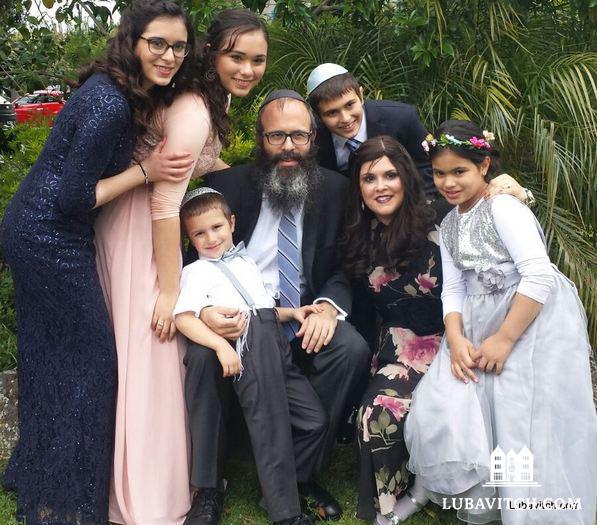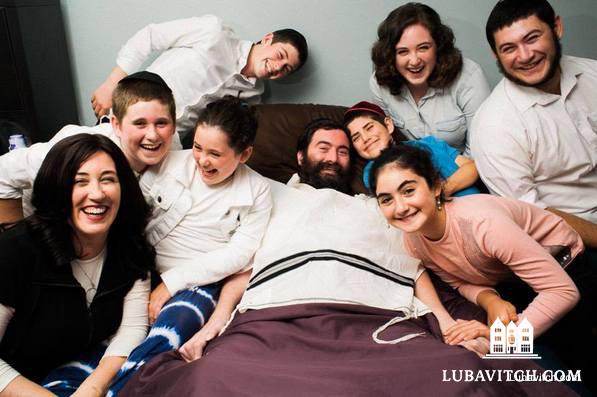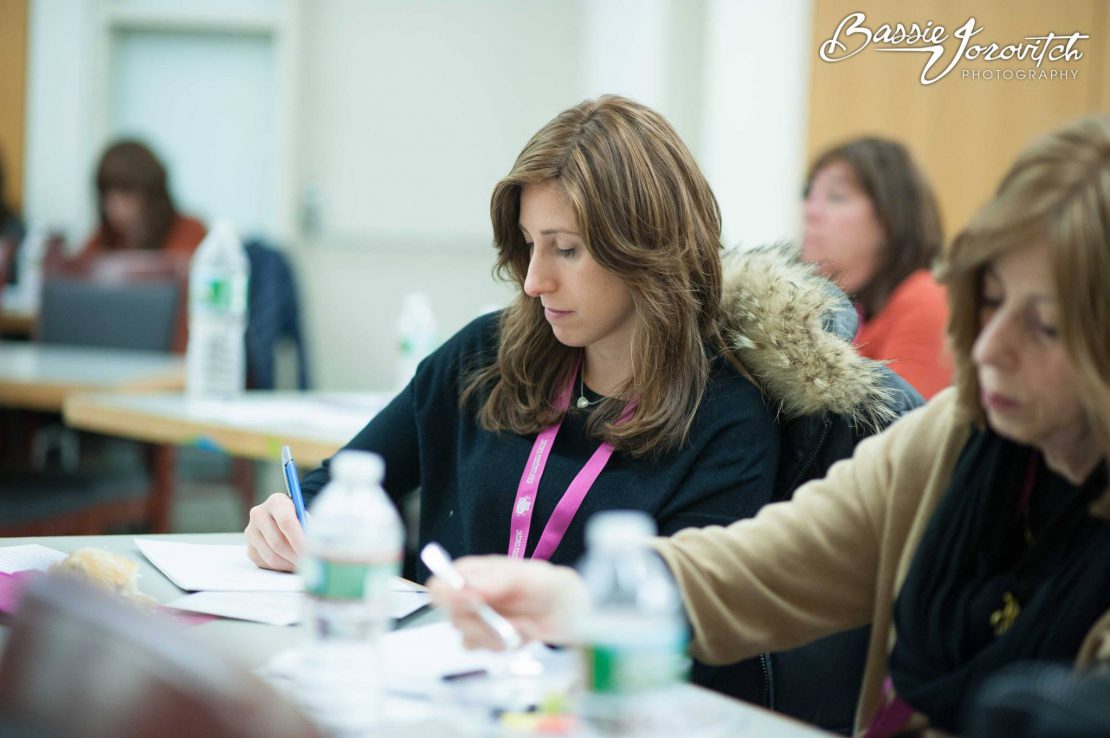Shluchot from all corners of the world gathered to draw inspiration and knowledge from an extended weekend jam-packed with workshops and events at the International Conference of Shluchot. 3,500 women from 90 countries celebrated at the event’s banquet dinner, which took place Sunday, February 20.
The International Conference of Chabad Shluchos (women emissaries) usually generates a buzz for its grand gala banquet with guests who applaud the work of Chabad’s representatives, and speeches that spur them on to greater achievements.
But the banquet dinner comes after four days of workshops, discussions and closed-door sessions where shluchos unpack some of the complex situations they encounter in their work. Here is where they—leaders who are sought out for support and guidance within their own communities, share time with their colleagues for the support and guidance they need when faced with their own challenges.
This year, the conference began on February 15, 2017 at Chabad-Lubavitch Headquarters in New York. 3,500 women from 90 countries celebrated at the event’s banquet dinner, on Sunday February 20. But first they spent a few days teasing out some of the thorniest issues in their communities: educational challenges, relationship issues, drug abuse, tragedies, intermarriage, alternative lifestyles that conflict with Jewish law, political differences and more.
Throw their own parenting struggles, family dynamics, and sometimes critical health issues into the mix, and the shluchos, who keep an open home as they model the values they believe in, carry a spectacular weight on their shoulders. The programs offered at the annual conference and developed by consensus focus on equipping these women to negotiate whatever comes their way with a wellspring of wisdom, empathy and composure.
Holding It Together…
Baila Brackman, Chabad representative to the University of Chicago with her husband Rabbi Yossi, was delighted when university President Robert Zimmer accepted their invitation to join Chabad for Shabbat dinner last year. The couple, who run a very active Chabad student center on campus, had waited a long time to host him and were planning a grand Shabbat dinner in his honor.
Three days before the dinner, as they were in the thick of preparations, their world suddenly turned dark. Ten year-old Shmulie Brackman was diagnosed with acute lymphoblastic leukemia. He was immediately admitted to Comer Children’s Hospital at the University of Chicago where he would begin the long process of cancer treatment.
“There was a part of me that wanted to drop everything. This diagnosis was traumatic and nothing was as important as taking care of my son,” Baila shared. But Chabad was her family too. She and her husband would find the strength to sustain them. “The students who depend on us, who find a home in our Chabad center—they are our family too. We we would find a way to hold it all together.”
At the Shabbat dinner, as students and President Zimmer settled in, they noticed Baila was missing. And where was Shmulie, who had made good friends among the students? Students were in tears as Brackman broke the news that his wife was in the hospital with their son, who was undergoing treatment. But the rabbi asked them to focus their energy in a positive way and honor Shmulie’s request that they take on a mitzvah for his recovery. They did, and word spread. More than a year later, the Brackmans are still learning about how their 10-year-old inspired students, parents and faculty with his faith.

Julia Ullman is a third-year student double majoring in Jewish Studies and Near Eastern Languages and Civilizations at the University of Chicago. When students learned of Shmulie Brackman’s diagnosis they banded together to form a network of support around him, she said. But it was Baila, “a super-mom and super-woman, who held it all together.”
Keeping it all going while seeing her son suffer the harrowing effects of chemo and other treatments, Baila is emotionally and physically exhausted. The mother of five is planning to go to the annual conference, she says, for a respite. “I just want to be with my sisters, [all five of them will be joining her at the conference] and with other shluchos. They give me strength.”
She needs the strength. Her son has a good prognosis, but a long road to recovery. With it all, Baila continues to lead classes and programs with an active Facebook page: “Please join Baila tomorrow (Tue) at 1:00-2:00 pm for Pizza and Torah at Hutch Commons—back table,” was her January 30 post. And days before that, “Shabbat services tonight are at 6:30, followed by dinner at 7:15. Delicious homemade Shabbat dinner! Explanatory services tomorrow morning at 10, followed by lunch. Welcome Shabbat! Welcome peace!”
…And Joyful To Boot
With it all, says Baila, she feels blessed and continues “to find joy in what we are doing.”
Being joyful may be a tall order to fill in the face of a nightmare, but Chabad shluchos see it as integral to their identity and their role. “Bringing a joyful Judaism to people in our communities who have either never experienced Judaism or never experienced it with joy is of the most important aspects of a Chabad emissary’s job.” says Dina Hurwitz. “But we, like everyone else, also go through terrible and painful challenges.”
She would know. In 2013, Hurwitz’s husband, Rabbi Yitzi, was diagnosed with bulbar onset, a dreaded form of ALS. The Hurwitzes were Chabad reps in Temecula, California, for 14 years, until the disease advanced, forcing them to move with their seven children to Los Angeles. Today, Rabbi Yitzi is 95 percent paralyzed and can no longer speak or breathe on his own. An incurable optimist with a larger-than-life faith in G-d, he continues to communicate using eye-movements, sharing Facebook messages of joy for yiddishkeit, a love for life and gratitude for the blessings he counts even in the face of his severely limited life. For Dina, trying to sustain a joyful spirit in the face of her husband’s steady decline seemed an impossible expectation.
“The challenges that nobody knows about are the ones that create the biggest obstacle to joy,” says Dina. “It is such a heavy weight and if there is nobody to share it with, the burden can be crushing.”

But Dina quickly drew support from the camaraderie she has with fellow emissaries. “It alleviates so much pain because you are not going through it by yourself. Fifteen or twenty years ago, people kept their problems very private and I don’t know how they managed to do a good job in their role as an emissary with that heavy weight on their shoulders,” she says. “We are very fortunate to live at a time when everyone recognizes that everyone has a problem, and maybe we can help each other. It is part of our sisterhood, that we are there for each other.”
Politically Correct
Few things have taken over the public’s consciousness as the recent bitter and divisive political climate. Whatever their politics, Chabad representatives generally keep it to themselves. Mrs. Nechama Eilfort, whose personal political opinions lean conservative in the liberal utopia of southern California, says she is careful not to take a position so as not to alienate any Jews. But there are issues she feels strongly about and occasionally will share a link on her social media account that ruffles some feathers. But politics are never dictated from the pulpit.
“It does not matter where we fall on partisan lines. We are family,” and that means accepting those whose politics she may disagree with. After the election, a woman in her community couldn’t get out of bed for two days. Eilfort reached out to her with empathy and friendship.
The key, she found, is to remain non-judgmental. At a recent conference, she led a workshop on managing difficult conversations. She coaches other emissaries, helping them respond when people in their community are struggling with drugs, LGBTQ issues, teenage rebellion, or depression. “These issues are raised around my Shabbos table and my 10-year-old hears about it. But as long as it’s taking place in an appropriate environment and an appropriate manner, we put our personal discomforts aside and guide the conversation.”
Not all of Eilfort’s colleagues share her politics, but all agree that these differences should take a back seat to Jewish engagement. “I do not want the student with political views to the right or left of my own to feel unwelcome at Chabad,” said Rochel Leigh, campus representative at Cambridge University in England.
The Leighs see to it that students of all viewpoints are made to feel welcome. “One student thought she had no place at our table, and had previously been made to feel that only right wing views are tolerated in Jewish communities, isolating her and her friends from organized Judaism. She was welcomed here, and she was able to express her views.” It was a positive experience, observed Leigh, because “everyone had to listen to the other. Open debates are possible and treasured in our Chabad House.”
Dashed Expectations
In recent years, Chabad emissaries have been sharing their struggles not only with each other, but also within their respective communities. “It is a give and take,” says Dina Hurwitz. “We are here to support you on your journey to Judaism, and you can also learn from our challenges and how we approach them with optimism and joy and faith.”
For any parent invested in their children’s Jewish life, a rebellious child can be profoundly unsettling. But when the child of Chabad emissaries, who are passionate about the immersive Jewish lives they live, and strive to make accessible to others, goes off in another direction, it leaves them not only having to work through their own disappointment, but also to address the community’s dashed expectations.
One emissary, who asked not to have her name published out of respect for her daughter, reflected on what she calls one of the most sensitive and painful situations she experienced, when her daughter dropped her traditional lifestyle. “This life is a journey. You set out on a path and you think it is going to go a certain way and there are all sorts of obstacles and hurdles. Your children are your helpers at every step in your larger Chabad family. They are your backup crew. And every one of their milestones is a communal event. But they grow up and make their own choices and sometimes, it will take you by surprise. They are their own people and have the autonomy to make their own decisions. It saddens me that my own child does not share my passion for yiddishkeit.”
Chabad representatives communicate with each other year-round. But the conference provides a more structured venue, with small workshops that allow them to meet colleagues who have been through similar experiences. “When I finally opened up about my own struggles I found others who had been there and could offer me real insight. I learned that my daughter’s choices are not necessarily a reflection of my actions and that I did not do something wrong. That reassurance was important to me. It also helped me have the confidence I need with my own community: my child’s choice does not make Judaism any less valid or less valuable. It does make it more challenging. I have to dig deeper to find strength in my role.”
Large, bustling families, stable marriages, domestic harmony and open homes with elaborate Shabbat dinners and year-round holiday events where people are always welcome, have become a Chabad trademark. Students are drawn to their Chabad rebbetzins who balance pragmatism with idealism as they manage an eye-popping cartful of responsibilities with joy and aplomb. Many are inspired to achieve the same dynamic in their own lives.
But sometimes, the most teachable moments come in their response to a curveball thrown unexpectedly at them. Students like Julia Ullman take notice. Baila, she says, “Always maintained a positive attitude through the worst of times. She balanced her responsibilities at home, at Chabad, and at her teaching job in a way that I could never imagine being able to do. She found a lesson in every challenge, inspiring the community to maintain strength and faith through despair.”

Be the first to write a comment.